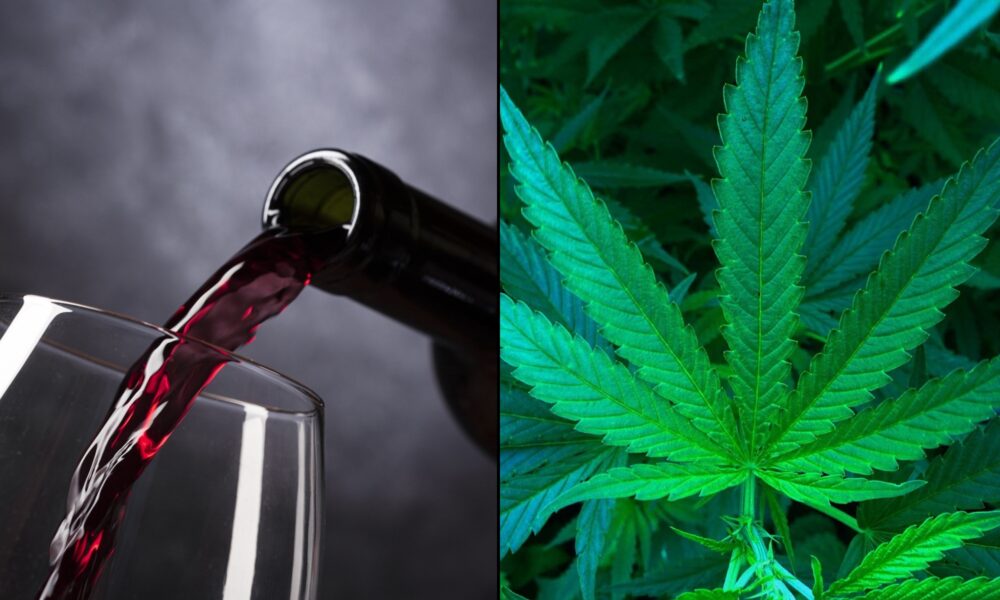Passenger cruise lines like Carnival and Royal Caribbean have policies against marijuana, noting that the substance is illegal in many ports it sails to and that they’re following federal law. But as more people return to the ships, and as more of them come from states where the drug is legal, operators are reportedly taking more extreme measures to detect cannabis and cracking down on people who attempt to use it—including those who simply pack CBD products, which are legal across the U.S.
As the Wall Street Journal reported in a story on the trend this week, Carnival Cruise Lines not only sends pre-cruise messages reminding passengers not to bring marijuana, but also now employs drug-sniffing dogs.
Companies say they’re focused on legal compliance and providing a comfortable experience for non-users, but the article notes that cruise operators may have an ulterior motive to discourage marijuana use.
“Besides limiting potential legal liability, cruise lines could benefit financially by prohibiting cannabis on board,” the paper reported. “Alcohol is a major revenue-generator for ships, and cruises also limit how much booze passengers bring on board.”
It talked to a Florida-based personal-injury attorney who said he’s “convinced that the decision to take such a hard line on marijuana or CBD is because they’re trying to drive alcohol sales.”
Royal Caribbean told WSJ that it prohibits all marijuana on its ships, including for medical or therapeutic use. Carnival, for its part, said it’s not considering marijuana’s effect on alcohol sales in setting the policy.
“That sounds like something someone would say when they’re high,” quipped Chris Chiames, chief communications officer for the cruise line.
“When a guest cannot enjoy their balcony because neighbors are smoking marijuana, this becomes a customer-service issue,” Chiames said.
The article quotes a number of passengers who feel similarly to Chiames—that marijuana use shouldn’t disturb another guest’s enjoyment of the cruise. But it also notes that some cruise lines prohibit hemp-derived CBD—even though the cannabinoid is legal at the federal level.
One Texas woman, Erin Van Veldhuizen, received a lifetime ban from Carnival lines after security found CBD gummies in her carry-on luggage before the cruise set off. Her lawyer said her family received a partial refund.
Nevertheless, enforcement appears to still be sporadic, as WSJ reported that other passengers have managed to smoke marijuana without consequence. And most passengers found with marijuana are rarely charged with a crime—at least in the U.S. Some tourists have faced civil penalties or even jail time for the drug in Bermuda and the Bahamas.
Carnival’s spokesperson acknowledged that many passengers are confused as more jurisdictions legalize marijuana despite federal prohibition. Nearly three-quarters of all U.S. states now allow medical marijuana, while almost half have legalized cannabis for adult use.
Of course, confusion can carry consequences, for example when WNBA player Brittney Griner, a registered medical marijuana patient in Arizona, was detained and sentenced in 2022 to nine years in prison—though later released—for possessing vape cartridges containing cannabis oil.
Another U.S. citizen, meanwhile, Mark Fogel, was reportedly transferred to a secret penal colony in Russia, without contact with his family, for possessing 17 grams of cannabis, which he said he used for medical purposes to treat back pain. Fogel, who formerly worked at the U.S. Embassy in Moscow, was sentenced to 14 years in Russian prison.
As State Department spokesperson Ned Price explained in May of last year, officials take into account 11-point criteria when determining whether a given case amounts to a wrongful detention. For example, if the U.S. has reason to believe that due process is being impaired, if that the person was arrested solely because they are a U.S. national or if that they are innocent of the stated charges, that would warrant a wrongful detention designation.
The Biden administration faced consistent criticism over domestic marijuana policy in the context of Griner’s conviction and imprisonment, with advocates arguing that the U.S. would be better positioned to secure her release if it didn’t also criminalize people over cannabis.
Biden did issue a mass pardon last year to all Americans who’ve committed federal marijuana possession offenses, but advocates have pushed for further reform to ensure that nobody is in prison over cannabis.
Meanwhile, the federal government is in the midst of a historic rescheduling review, in which the Drug Enforcement Administration (DEA) is now evaluating a recommendation that cannabis be rescheduled under the Controlled Substances Act, reportedly to Schedule III, alongside drugs like ketamine and Tylenol with codeine.
While it’s unlikely the rescheduling, if it happens, would have any legal effect on cruise ship policies—especially with potential Food and Drug Administration approval of additional cannabis-based drugs some ways off—the change could nevertheless build further momentum (or confusion) around allowing marijuana on cruise ships.
Top Virginia Senator Wants Legal Marijuana Sales In Exchange For Approving Sports Stadium Favored By Governor
Read the full article here









